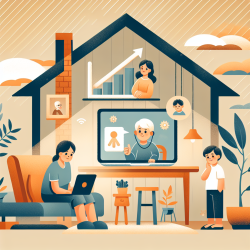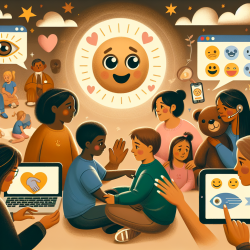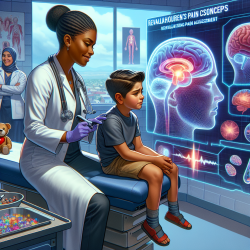The COVID-19 pandemic has posed unique challenges for families of children with Autism Spectrum Disorder (ASD) and Developmental Disorders (DD). A recent study titled "Parental Views of Families of Children with Autism Spectrum Disorder and Developmental Disorders During the COVID-19 Pandemic" sheds light on the impacts of the pandemic on these families. As a practitioner in online therapy, understanding these impacts can help you tailor your services to better meet the needs of these families.
Key Findings from the Study
The study employed a mixed-method approach, integrating both qualitative and quantitative data to provide a comprehensive view of how the pandemic has affected families of children with ASD and DD in Turkey. Here are some of the key findings:
- Increased Family Interaction: The pandemic has led to more time spent together as a family, which many parents viewed positively. This increased interaction has, in some cases, led to improvements in verbal behaviors and self-care skills in children with ASD.
- Unmet Educational Needs: The closure of schools and special education centers has significantly impacted children with ASD and DD, as many parents reported unmet educational needs.
- Financial and Emotional Strain: Some families faced financial difficulties and increased emotional stress due to the pandemic, highlighting the need for comprehensive support systems.
- Positive Behavioral Changes: Despite the challenges, some parents reported positive changes in their children's behaviors, such as increased verbal communication and improved self-care skills.
Implications for Online Therapy
Understanding these findings can help practitioners improve their online therapy services in several ways:
1. Focus on Family Interaction
Encourage parents to engage more with their children during therapy sessions. Use family-based activities that can be easily integrated into their daily routines. This can help reinforce the positive behavioral changes observed during the pandemic.
2. Address Unmet Educational Needs
Develop customized educational plans that can be implemented at home. Utilize online resources and tools to provide interactive and engaging learning experiences. Regularly check in with parents to adjust these plans as needed.
3. Provide Emotional and Financial Support
Offer resources and referrals to financial aid programs and emotional support services. Consider integrating stress management techniques into therapy sessions to help parents cope with the additional strain.
4. Monitor Behavioral Changes
Keep track of any positive behavioral changes and reinforce these during therapy sessions. Provide parents with strategies to maintain and further develop these skills.
Encouraging Further Research
While this study provides valuable insights, further research is needed to understand the long-term impacts of the pandemic on families of children with ASD and DD. Practitioners are encouraged to contribute to this growing body of research by documenting their observations and sharing their findings with the broader community.
To read the original research paper, please follow this link: Parental Views of Families of Children with Autism Spectrum Disorder and Developmental Disorders During the COVID-19 Pandemic.










